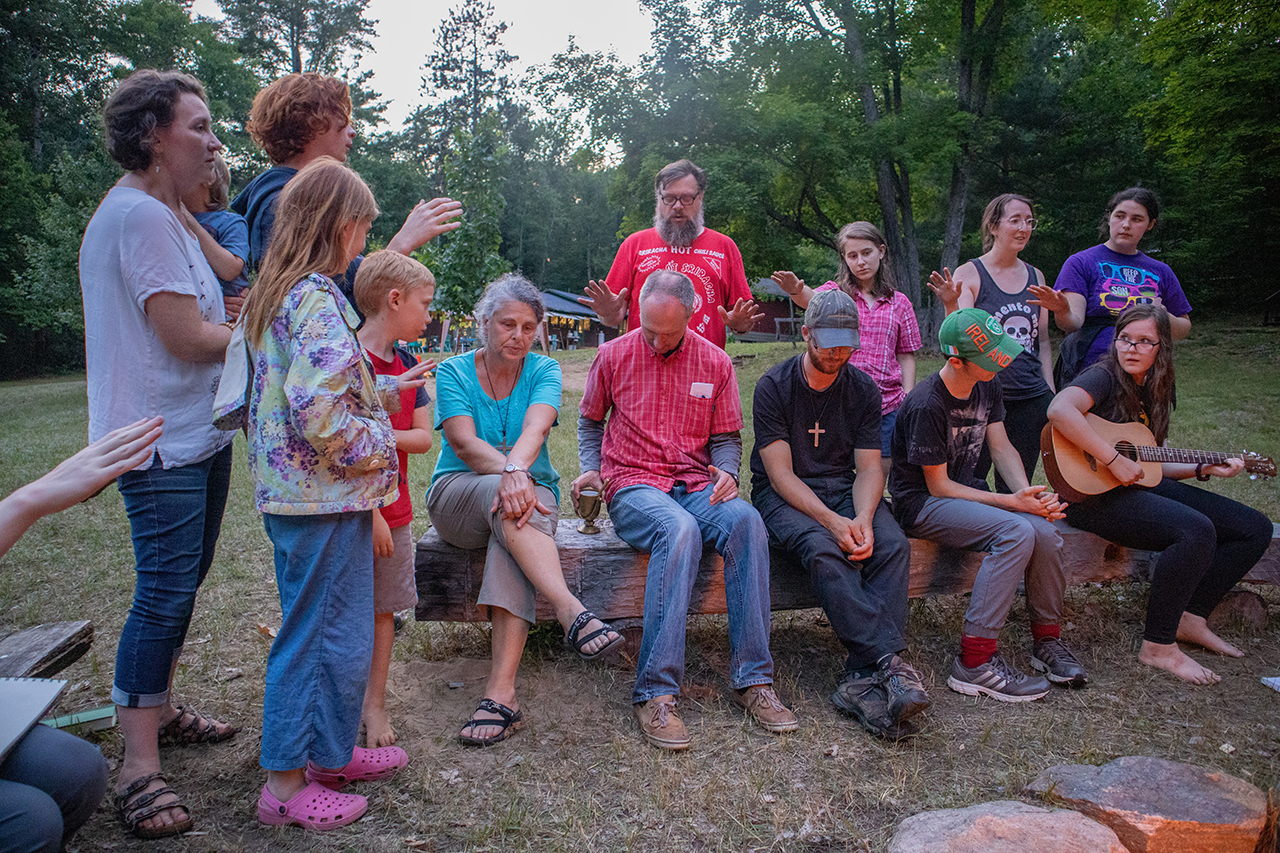This content has been archived. It may no longer be relevant
On Sunday afternoons and evenings the 7 or 8 or 9 families begin settling in for their week. Husbands and wives are unpacking and storing groceries. Kids are running around everywhere. People are meeting one another for the first time—and walking down to the lake to get a first look at that beautiful, pristine body of water surrounded by Canadian wilderness.
The beautiful chapel, Our Lady of the Lake is tucked away in one corner, hidden, yet visible from many parts of the camp, its warm red sanctuary lamp speaking of a Presence that is with us at all times.
During the ensuing week, so much happens—in prayer, in everyday encounters, at play, at Mass, while doing dishes or praying the rosary in the evening as the setting sun shines into the chapel illuminating the statue of Our Lady.
The Church’s teaching on marriage is given informally at conferences for parents and during homilies at Mass. And there is plenty of time for simply talking together—husbands and wives, clergy and laity, celibate staff of Madonna House and married couples.
Slowly during that week, a strange transformation begins to take place. Slowly, almost imperceptibly, burdens fall away and our vision of family is renewed. That is to say, we remember again that God is with us, that Christ dwells in us, through his Holy Spirit.
As Christ loved the Church and gave himself for her, so man and woman have it in them to love one another in their families with the very love of Christ himself. So whisper the breezes blowing through the poplar trees. So answer the stars that shine with undimmed brightness in the dark, dark nights of the wilderness. So confirms the silent Christ in the tabernacle, blessing us by day and by night.
Does this all sound a bit too idyllic for your taste? We could also mention the load of anguish and pain that is left at the feet of the Holy Family during an average week. The tears sometimes shed—tears of sorrow, repentance, joy. The unloading of despair that one’s family can even continue to be a family—despair replaced by a hope that enables one to start over yet again. The grace to trust is also given during these days together.
A major grace given is the renewed conviction that our marriages really can be lived out as the Church teaches, that with the help of the Lord and his saints, the impossible can become possible after all. How urgent it is that our Catholic families today touch this truth in a tangible way—see it, hear about it, experience it themselves!
Cana, you could say, is a bridge into the mystery at the heart of the life of every believer: the knowledge of…Christ, in whom are hidden all the treasures of wisdom and knowledge (Col 2:2ff).
But so is the cry of the husband or wife who prays earnestly for light on the path and grace for the way. So, too, is the weariness at the end of the day that commends itself to the Lord more in sighs and groans than in words. So, too, are silent tears shed alone at night or together around the bed of a sick child.
So, also, the at times desperate struggle to forgive yet again, to serve yet again, to hope yet again that “it will all work out somehow.”
To all of these, the Lord in his mercy reveals himself at the heart of everyday life.
He offers us a share in his own joy that calls to us from the heart of wherever we are, and whatever we are living and says, “Trust love. Trust a generosity that forgets self for the sake of the other.”
Wherever the offering of love is asked, there, too, is the Mystery that draws us into itself. How much more is this true in an age when the family is being so sorely tried! Wherever Christ is loved, there, too, is the wedding feast!
Truly Cana Colony is a labor of love that yields a banquet of graces for those privileged to attend, and we thank the God of mercy for himself, who is accessible to us in our great need today.
(by Fr. David May)





